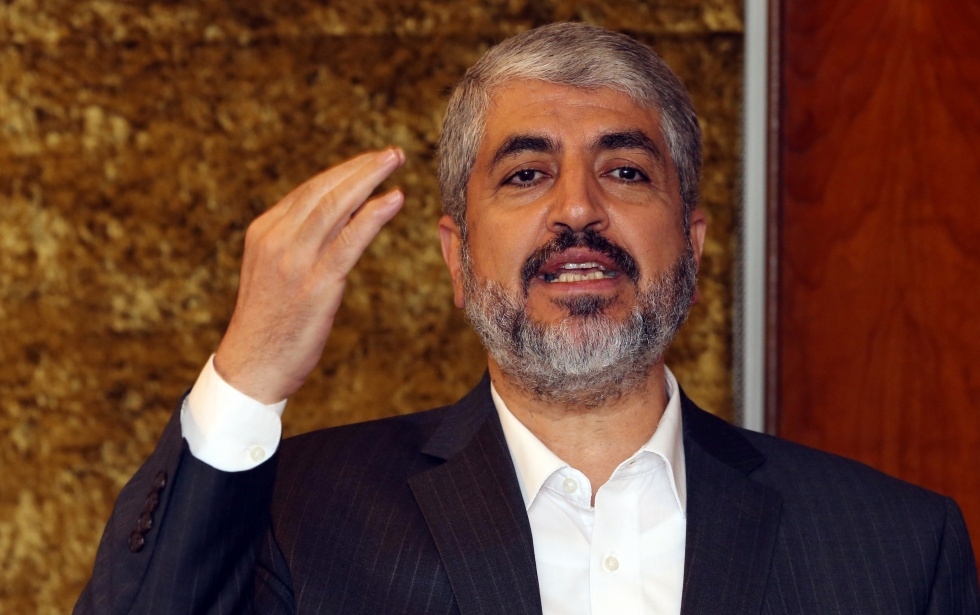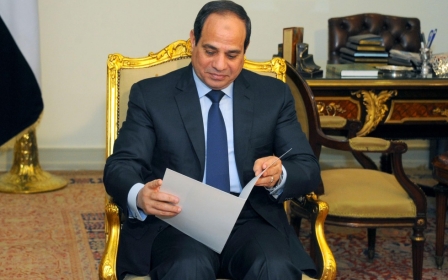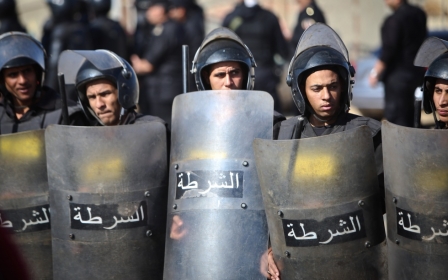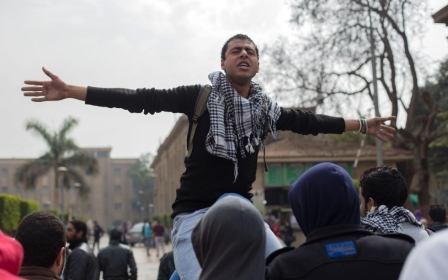Egypt court declares Hamas a 'terrorist' organisation

An Egyptian court on Saturday declared Hamas a "terrorist" organisation, a judicial source said, weeks after the Palestinian resistance movement's armed wing was given the same designation.
The Cairo Court for Urgent Matters made the designation after two private lawsuits were submitted by lawyers Samir Sabry and Ashraf Said against the de facto rulers of the Gaza Strip.
Hamas said the ruling was “shocking and dangerous,” according to a statement released by the group.
“The Egyptian court’s decision to list the Hamas movement as a terror organisation is shocking and is dangerous, and it targets the Palestinian people and its factions of resistance,” the statement said.
A spokesperson for the group told Anadolu Agency Egypt was "serving the Israeli enemy" with its decision.
"With this politicized verdict, Egypt is serving the Israeli enemy and is no longer an impartial sponsor to any Palestinian issue," said Fawzi Barhoum. "Unfortunately, the situation has been turned upside down: Israel the enemy has become a friend of Egypt while Hamas – which is an integral part of the Palestinian people – has become a terrorist."
A spokesperson for the Egyptian government declined to say what actions the government would take to enforce the ruling.
"When a final judgment is issued, we will discuss this," Hossam al-Qawish said, according to Reuters.
Egyptian authorities in March 2014 barred Hamas from carrying out any activities on its soil and froze the group’s assets. Last month the Court for Urgent Matters designated Hamas’ armed wing – the Ezzedine al-Qassam Brigades – a “terrorist” group.
In its ruling the court said the brigades had been involved in “several terrorist operations, the latest of which was an attack on a security checkpoint in Egypt’s Sinai Peninsula on the border with the Gaza Strip in October, in which 31 soldiers were killed.”
Hamas has repeatedly denied being involved in deadly attacks across Egypt’s restive Sinai Peninsula and said it cannot “act against Egypt’s national security”.
The movement is an ideological offshoot of the Muslim Brotherhood, which Egypt – under President Abdel-Fattah al-Sisi – has criminalised and severely cracked down on since the army’s popularly backed military coup in June 2013.
Thousands of Brotherhood supporters have been jailed and hundreds sentenced to death, in trials roundly condemned by international human rights groups as being unfair. Egyptian authorities designated the Brotherhood a terrorist organisation in December 2013.
On Saturday a court sentenced the group’s leader Mohamed Badie to a fourth life sentence in prison, on charges relating to the deaths of protesters at the Brotherhood’s Cairo headquarters in 2013.
Three co-defendants of Badie were sentenced to death in the same trial.
Fourteen others, including Badie's deputies Khairat al-Shater and Saad al-Katatni, were handed life terms.
All were convicted on charges of "murder" and "incitement to murder" as well as possessing arms, but can appeal the verdicts.
Badie and the other defendants present in court for the verdict denounced the sentence and shouted: "Down with military rule".
On 30 June 2013, protesters stormed and torched the Cairo headquarters of the Muslim Brotherhood as millions took to the streets of Egypt demanding the resignation of president Mohamed Morsi.
Morsi, who belongs to the Brotherhood, was ousted just days later by then army chief and now President Abdel Fattah al-Sisi after one year in office.
Prosecutors said 12 protesters were killed when they clashed with Morsi supporters during the storming of the Brotherhood offices, while more than 90 were wounded.
New MEE newsletter: Jerusalem Dispatch
Sign up to get the latest insights and analysis on Israel-Palestine, alongside Turkey Unpacked and other MEE newsletters
Middle East Eye delivers independent and unrivalled coverage and analysis of the Middle East, North Africa and beyond. To learn more about republishing this content and the associated fees, please fill out this form. More about MEE can be found here.




